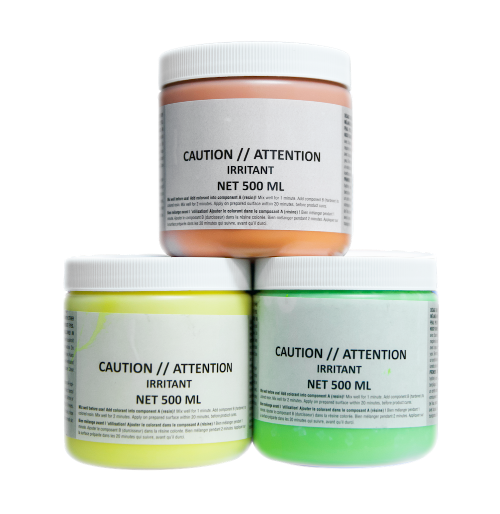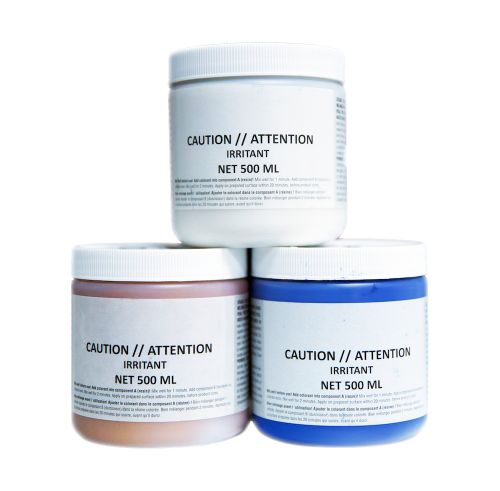With years of experience as epoxy installers and manufacturers, we've faced a higher risk of exposure than the average user. Based on our own experience and insights from other professionals, we can assess the potential health effects of handling epoxy coating products.
How Can You Be Exposed to Epoxy?
Exposure to epoxy can occur through:
Skin contact – Handling uncured epoxy without protective gloves.
Inhalation – Not wearing a face mask and breathing in fumes from epoxy resins, hardeners, or dust during sanding.
Eye contact – Accidental splashes or vapors irritating the eyes.
Ingestion – Rare but possible if epoxy residue is accidentally transferred to food or drink.
Short-Term Health Effects of Epoxy Overexposure
When working with epoxy, even short-term exposure can cause immediate health issues, including:
1. Skin Irritation & Allergic Reactions
Epoxy resins and hardeners can cause skin irritation, redness, or allergic reactions such as dermatitis. Those who develop sensitivity may experience itching, swelling, or rashes.
2. Respiratory Issues
Fumes from epoxy, especially when working in poorly ventilated areas, can lead to headaches, dizziness, nausea, and throat irritation. People with asthma or respiratory conditions may experience worsened symptoms.
3. Eye & Mucous Membrane Irritation
Epoxy vapors or accidental splashes can cause burning, redness, and irritation in the eyes.
Long-Term Health Effects of Epoxy Overexposure
Repeated or prolonged exposure to epoxy without proper safety measures can lead to more serious health conditions:
1. Chronic Skin Sensitization
Continuous contact with epoxy can cause permanent skin sensitivity, leading to severe allergic reactions even with minimal future exposure.
2. Respiratory Sensitization
Inhaling epoxy fumes over time may lead to chronic breathing difficulties, coughing, and lung irritation. Some individuals may develop occupational asthma.
3. Neurological Effects
Exposure to certain epoxy components, such as solvents, has been linked to dizziness, confusion, and long-term nervous system effects with prolonged use.
Safety Tips to Prevent Epoxy Overexposure
To reduce the health risks associated with epoxy, follow these safety measures:
✔ Wear Personal Protective Equipment (PPE): Use gloves, long sleeves, safety goggles, and a respirator mask when handling epoxy.
✔ Ensure Proper Ventilation: Work in a well-ventilated area or use exhaust fans to minimize inhalation exposure.
✔ Avoid Direct Skin Contact: Use disposable or chemical-resistant gloves and wash hands thoroughly after handling epoxy.
✔ Use Epoxy Safely: Follow manufacturer instructions, mix components correctly, and avoid overheating the resin.
✔ Store Epoxy Properly: Keep epoxy in sealed containers away from heat sources and out of reach of children or pets.
Final Thoughts
Epoxy resin is an incredibly useful material, but overexposure can lead to serious health risks if not handled properly. By taking the right precautions, you can safely work with epoxy while minimizing potential hazards. Always prioritize safety and be aware of the signs of overexposure to protect yourself and those around you.











